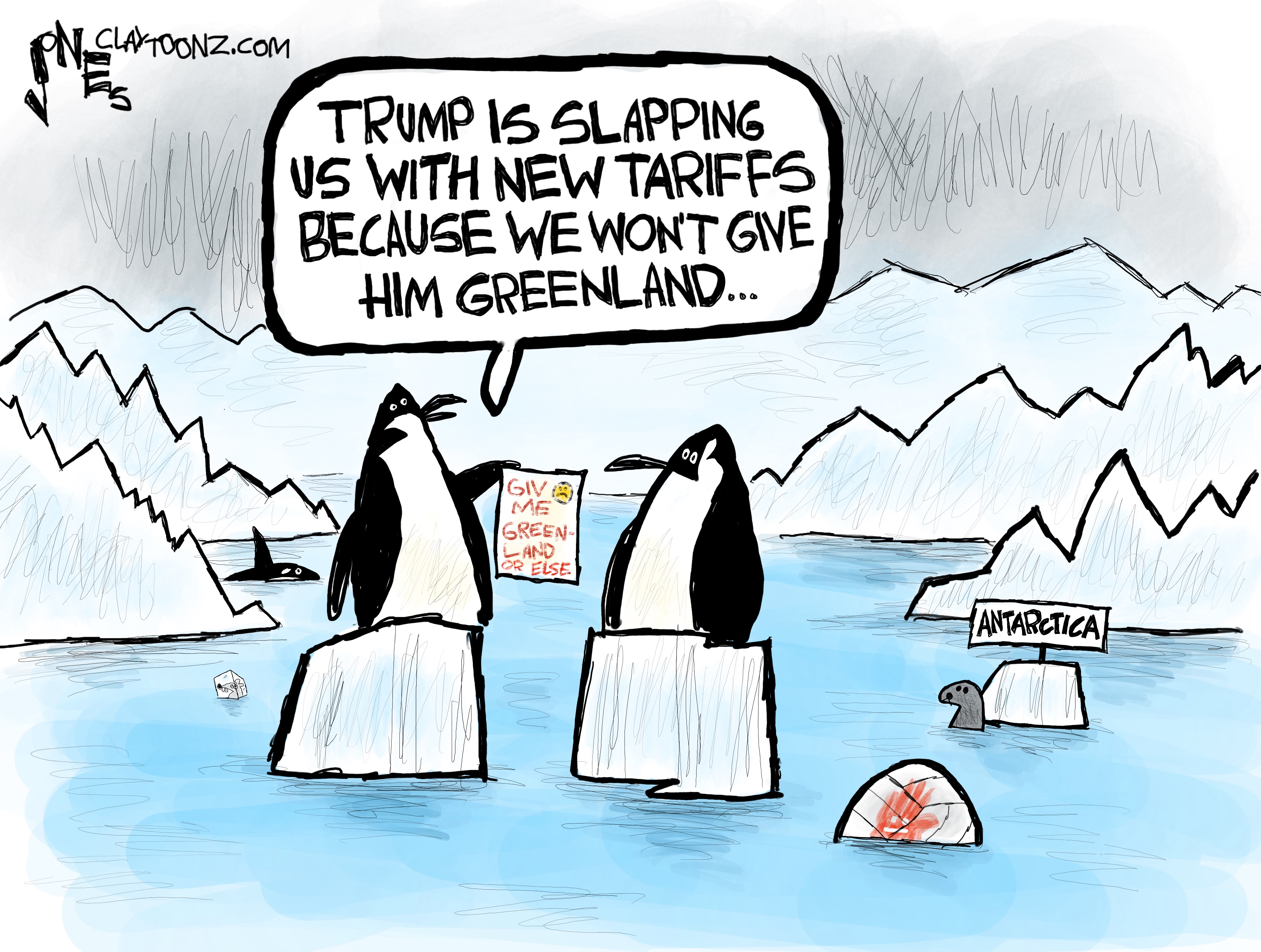Why America's sharing economy needs a massive expansion of the welfare state
The startup crowd keeps trying to reinvent the welfare wheel. But a better answer is staring us right in the face.


A healthy society needs to provide people with health care coverage, retirement income, unemployment insurance, and paid time off, among other things. For a long time now, America has relied on employers to pony up many of these benefits on their own. But there's increasing pressure throughout the economy to break that link, and allow more flexibility into the contracts and relationships between employers and employees.
So a group of minds from the tech sector, the sharing economy, the think tank realm, research organizations, workers groups, and even the National Economic Council thinks we need some sort of alternative: a structure, separate from any individual employer, that can provide workers with all those benefits, and allow them to carry them uninterrupted from job to job. The Washington Post reported that this group has put together a statement of principles.
But here's the thing: Our society already has an institution that fulfills all these requirements. One that can provide workers benefits from retirement income to health coverage to paid leave, that can muster the resources to do so, and that can do all this completely independent from all employers. It's called the government.
The Week
Escape your echo chamber. Get the facts behind the news, plus analysis from multiple perspectives.

Sign up for The Week's Free Newsletters
From our morning news briefing to a weekly Good News Newsletter, get the best of The Week delivered directly to your inbox.
From our morning news briefing to a weekly Good News Newsletter, get the best of The Week delivered directly to your inbox.
Let's go through the list.
Retirement income is the easiest: We already have Social Security. It's just too stingy, so people have to supplement it with other, grossly inadequate private benefit schemes like 401(k) plans. This creates extra overhead for employers and bureaucratic headaches for employees, while Wall Street profits off the fees. We should simply expand Social Security to crowd out the need for retirement benefits via our employers.
The next easiest is health coverage, since the government already does a lot of that too. Medicaid and Medicare are single-payer systems that cover the poor and the elderly, respectively. And ObamaCare provides a lot of people in between with private insurance via government regulations and subsidies. It's not ideal: ObamaCare still needs lots of work, and obviously it would behoove us to combine these three programs into one coherent system. But the government could obviously replace all employer-provided health benefits if it wanted to, and it should.
Unemployment insurance, as it currently stands, is a mishmash of state and federal programs, and is run off taxes paid into the insurance pools by employers. So why not just run unemployment insurance through the federal government and pay for it out of general tax revenue? The qualifications for who gets how much in unemployment benefits can be decided between voters and the government — there's no need to get employers involved.
A free daily email with the biggest news stories of the day – and the best features from TheWeek.com
It's the same for paid vacation, and paid family and sick leave. Just have the government lay out one universal rule and formula for how much of each form of leave all employers must offer. We could even have the government kick in the extra money needed to fund those leaves if we feel like it. For childcare, the government could just provide a universal child allowance with which people can pay for services or just replace the income they lose by staying home with their kids themselves.
This approach would meet basically all of the metrics called for in that statement of principles. It would be independent and universal, in that all workers could access all these benefits regardless of their employment status or where their income comes from. It would be portable, since workers would keep the same package of benefits no matter what job they jump to. And it would be flexible and supportive of innovation in the best sense, in that it would entirely free employers from the burdens of both paying for these benefits and running their bureaucratic structure.
It would be a conceptually simple solution, relying on an institution (the government) that we already have. It would also remove much of the need for classifying workers as either contract or full-time employees. Right now, figuring out which bucket a worker belongs in is a complex and legally fraught question, and the sharing economy's business model effectively rests on exploiting the grey zone between the two. Supplying these benefits universally to everyone through the government would pretty much eliminate much of the need for sorting workers into either bucket, and would release sharing economy start-ups from most of the costs they're trying to avoid in the first place.
Yet the solutions suggested in the Washington Post story point in the opposite direction: toward creating all new institutions or all new government programs and tax schemes to deliver the benefits, and an all new hybrid category that workers can potentially fall into. They're all super weird and messy solutions to what is really a pretty straightforward problem.
The goal here should be for government to take on the entire burden of providing these benefits when it can. And when it can't entirely free employers, then employers should be given rules that are as simple, clear, and universal as possible. Then employers and employees can innovate different relationships and contracts to their hearts' content within that framework.
We probably wouldn't be able to entirely eliminate the need to legally classify workers. Some people really are self-employed and don't answer to a higher-up of any sort. So it's not clear how you'd give them something like paid leave, a minimum wage, or overtime pay. We might have to get creative here with stuff like wage subsidies or even a universal basic income.
But we also shouldn't be afraid to just tell some firms that they're employers and they have employees and that's that. Uber workers, for example, pretty clearly answer to a higher-up, who should give them minimum wage, paid leave, overtime, and all the rest. Some of the people in this new coalition won't like that, since their goal is to maximize flexibility for new business models. But having the government take over the burden of many of these benefits would clearly offer employers more freedom, so it seems fair to restrict their freedom somewhat in this other area. Flexibility isn't the only goal, and entrepreneurs don't have some God-given right to try out any business model they want.
No one's wringing their hands over the business model flexibility that America squashed by outlawing child labor, after all.
Jeff Spross was the economics and business correspondent at TheWeek.com. He was previously a reporter at ThinkProgress.
-
 Political cartoons for January 19
Political cartoons for January 19Cartoons Monday's political cartoons include Greenland tariffs, fighting the Fed, and more
-
 Spain’s deadly high-speed train crash
Spain’s deadly high-speed train crashThe Explainer The country experienced its worst rail accident since 2013, with the death toll of 39 ‘not yet final’
-
 Can Starmer continue to walk the Trump tightrope?
Can Starmer continue to walk the Trump tightrope?Today's Big Question PM condemns US tariff threat but is less confrontational than some European allies
-
 The billionaires’ wealth tax: a catastrophe for California?
The billionaires’ wealth tax: a catastrophe for California?Talking Point Peter Thiel and Larry Page preparing to change state residency
-
 Bari Weiss’ ‘60 Minutes’ scandal is about more than one report
Bari Weiss’ ‘60 Minutes’ scandal is about more than one reportIN THE SPOTLIGHT By blocking an approved segment on a controversial prison holding US deportees in El Salvador, the editor-in-chief of CBS News has become the main story
-
 Has Zohran Mamdani shown the Democrats how to win again?
Has Zohran Mamdani shown the Democrats how to win again?Today’s Big Question New York City mayoral election touted as victory for left-wing populists but moderate centrist wins elsewhere present more complex path for Democratic Party
-
 Millions turn out for anti-Trump ‘No Kings’ rallies
Millions turn out for anti-Trump ‘No Kings’ ralliesSpeed Read An estimated 7 million people participated, 2 million more than at the first ‘No Kings’ protest in June
-
 Ghislaine Maxwell: angling for a Trump pardon
Ghislaine Maxwell: angling for a Trump pardonTalking Point Convicted sex trafficker's testimony could shed new light on president's links to Jeffrey Epstein
-
 The last words and final moments of 40 presidents
The last words and final moments of 40 presidentsThe Explainer Some are eloquent quotes worthy of the holders of the highest office in the nation, and others... aren't
-
 The JFK files: the truth at last?
The JFK files: the truth at last?In The Spotlight More than 64,000 previously classified documents relating the 1963 assassination of John F. Kennedy have been released by the Trump administration
-
 'Seriously, not literally': how should the world take Donald Trump?
'Seriously, not literally': how should the world take Donald Trump?Today's big question White House rhetoric and reality look likely to become increasingly blurred
